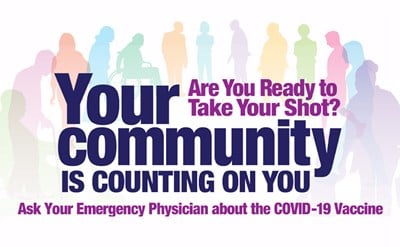WASHINGTON, D.C.—A final rule issued today by the Department of Health and Human Services (HHS) expands “conscience protections” for providers who refuse to administer certain types of care based on religious belief or moral conviction. This rule is worrisome and dangerous for patients, according to Vidor Friedman, MD FACEP, president of the American College of Emergency Physicians (ACEP), and Omar Maniya, MD, MBA, president of the Emergency Medicine Residents’ Association (EMRA).
ACEP and EMRA released the following joint statement:
“Emergency physicians will care for any patient that needs emergency medical treatment. Denying emergency care or delaying emergency services based on race, religion, sexual orientation, gender identity, ethnic background, social status, type of illness, or ability to pay, is unethical and dangerous.
Refusing to care for patients who require emergency medical attention could violate federal law and stands in stark contrast to the sworn oath and fundamental principle of emergency care: we must treat or stabilize anyone who visits the emergency department, anytime.
ACEP and EMRA are concerned that these types of exemptions may run afoul of the Emergency Medical Treatment and Labor Act (EMTALA), fail to recognize the unique and vital nature of emergency medicine, and open the door to discrimination by institutions or individuals that are expected to prioritize patient care and safety ahead of personal beliefs.”
EMRA is the voice of emergency medicine physicians-in-training and the future of our specialty. EMRA is the largest and oldest independent resident organization in the world. EMRA was founded in 1974 and today has a membership over 16,000 residents, medical students, and alumni.
 American College of Emergency Physicians
American College of Emergency Physicians







